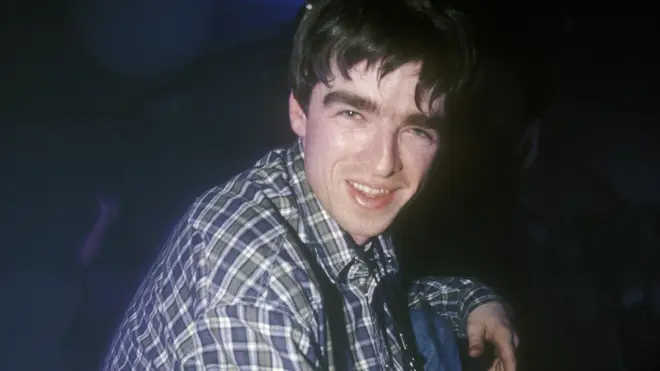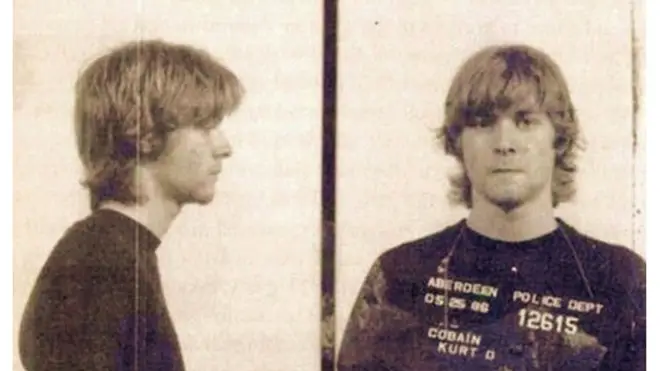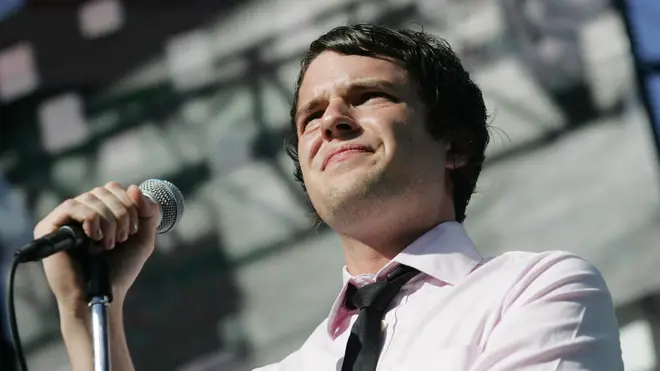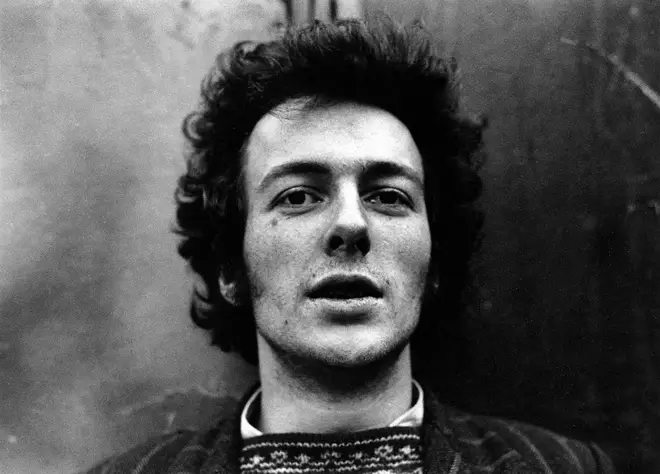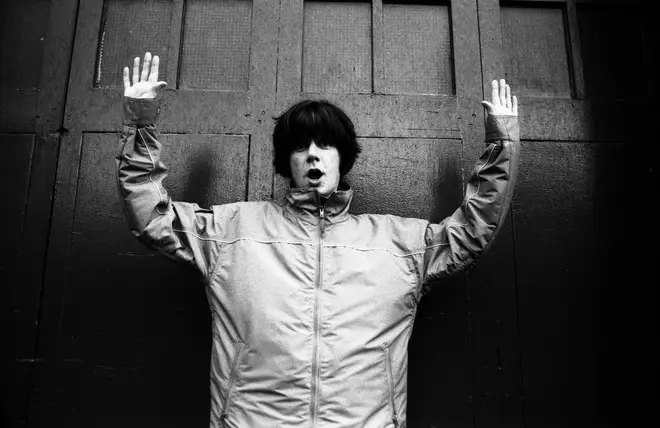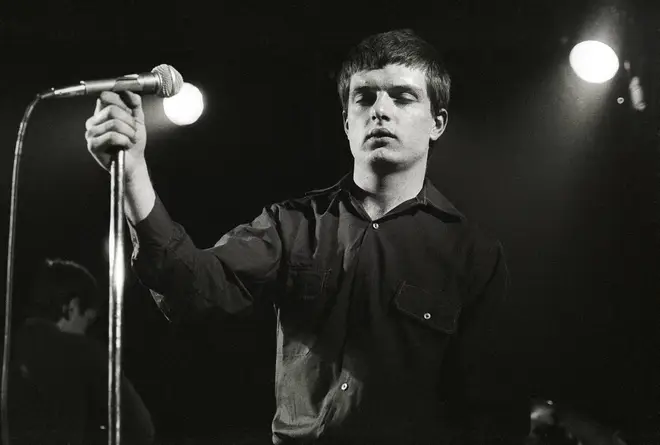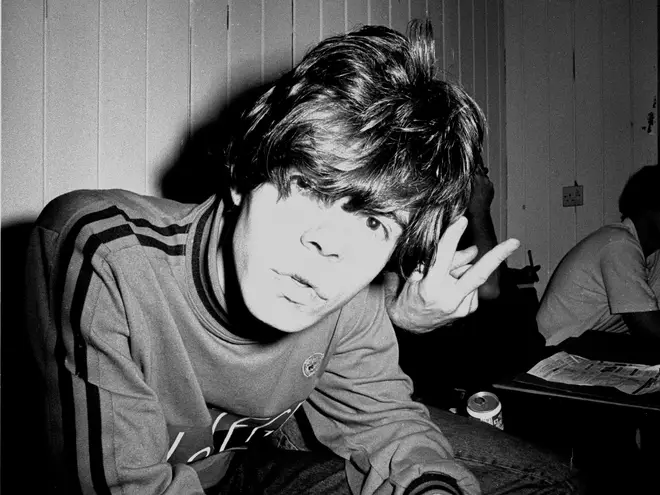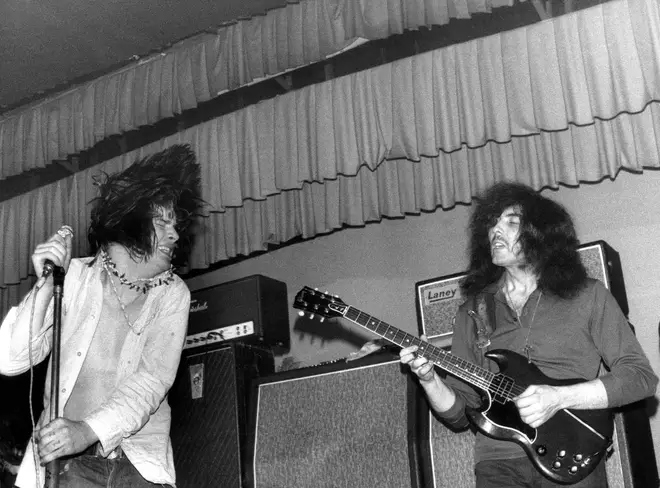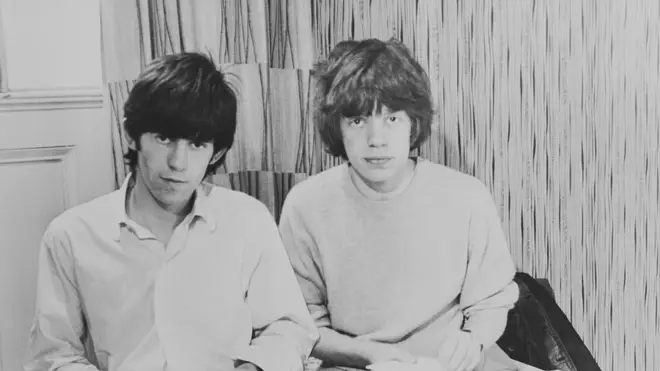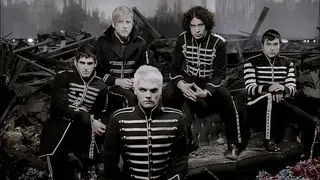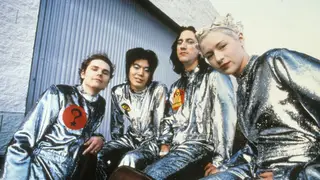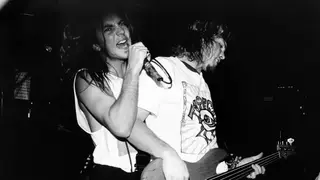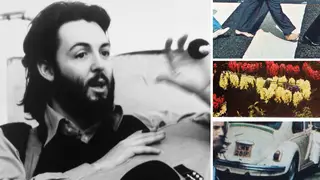The jobs rock stars did before they were famous
9 July 2024, 17:49

Would you stick to earning a living as an upholsterer? Or would you rather be a rock star, like Jack White did?
Listen to this article
-
Jack White - Upholsterer
Before launching The White Stripes, Mr White trained to be an upholsterer. He had his own business - Third Man Upholstery, whose slogan was "Your furniture's not dead". But rock 'n' roll was his first love - and he even started a band called The Upholsterers, who snuck 100 pieces of vinyl into 100 different sofas without their owners knowing. Now, Third Man is the name of White's record label, but he still keeps his hand in - in 2016 he worked on a vintage 1960s couch from the legendary Sam Phillips recording studio in Memphis.
"Jack White reupholstered my couch" pic.twitter.com/MQ7jewXrda
— Ian Cohen (@en_cohen) December 20, 2016 -
Noel Gallagher - Guitar Roadie
Before he took over his younger brother's band, Noel was famously a guitar technician for Oldham garage rock revivalists Inspiral Carpets. The future Oasis legend auditioned for the Inspirals when original singer Stephen Holt left, but was given the backroom job instead - "I think he got £3 a day and a Pot Noodle,” drummer Craig Gill recalled in 2015.
Noel Gallagher working as a roadie for the Inspiral Carpets, Manchester, 1992. Picture: Peter J Walsh/PYMCA/Avalon/Universal Images Group via Getty Images -
Kurt Cobain - Janitor
The future icon of Generation X spent some of his formative years working for Lemon's Janitorial Service in his hometown of Aberdeen, Washington. His bandmate Krist Novoselic recalled the period in the documentary Montage Of Heck: "He was working at the time as a janitor but he’d always have to do some kind of art – usually defacing something. He never had, like, idle hands. It just came out of him; he had to express himself.” It was this honest work that set Nirvana on the path to stardom: "Basically he cleaned toilets – that's how he paid for that demo."
19 year-old occasional janitor Kurt Cobain is nicked by the Aberdeen police for graffiti, in May 1986. Picture: Bureau of Prisons/Getty Images -
Brandon Flowers - Bellhop
The Killers frontman worked at the Gold Coast Hotel in his native Las Vegas when he was still getting the band together. He says of the experience: "I loved it. In the back of my head, you know, I just assumed this was what I would do - something like this - forever. Because that's what my uncle's did, and eventually, my dad became a bellman." On one occasion, Brandon looked after the bag of Morrissey's guitarist Boz Boorer and confessed he'd snuck a look at his CDs only to find demos of the forthcoming Moz album, You Are The Quarry!
Brandon Flowers imagines a life as a rock star instead of working the casinos at the KROQ "Weenie Roast" Concert 2004. Picture: J. Shearer/WireImage/Getty Images -
Joe Strummer - Grave Digger
John Mellor moved from London to South Wales in 1973 to be with a girlfriend. When that didn't workout, he ended up in Newport to pursue his musical career, but financed it by working at the nearby St Woolos Cemetery as a grave digger. He didn't last long, however. His friend Richard Frame recalled in 2018: "He wasn’t actually strong enough to dig graves and eventually he got the sack when he was found asleep in a grave.” By 1975, he'd moved back to London, renamed himself Joe Strummer and formed a band called The 101ers. His next band would be called The Clash.
Joe Strummer puts his failed grave-digging career behind him and looks forward to playing with his band The 101ers in 1976. Picture: Julian Yewdall/Getty Images -
John Squire - Model Maker
John Squire in 1997. Picture: Martyn Goodacre/Getty Images The Stone Roses guitarist was always a bit creative - he painted the band's sleeve art, of course. But pre-fame he worked at Cosgrove Hall, an animation studio in Chorlton, Greater Manchester and worked on the stop-motion TV adaptation of The Wind In The Willows, where he's credited as making props and model sets on a number of episodes between 1984 and 1986. The company also employed Bernard Sumner of Joy Division in the late 1970s.

Cosgrove Hall Wind in the Willows (1983) - Toad eats berries
-
Ian Curtis - Assistant Disablement Resettlement Officer
Before becoming the mesmerising frontman of Joy Division, Ian Curtis used to work for the Manpower Services Commission in Manchester, then at the local Job Centre in Macclesfield, finding work for disabled people. All of Joy Division tried to hold down day jobs during their early years, meaning lengthy journeys to gigs in the evenings and driving back home in the early hours of the morning.
Ian Curtis thinking about what time he needs to be back at his desk tomorrow morning. Picture: Rob Verhorst/Redferns/Getty Images -
Tim Burgess - Mail Delivery Boy
The Charlatans front man was a mail delivery boy at the huge ICI chemical works in Northwich, He recalled in 2016: "I used to ride my bike, throwing mail at people’s door while listening to music compilation tapes."
Tim Burgess backstage at a Charlatans gig in 1990. Tonorrow, he'll be back to delivering purhase orders for ICI. Picture: Martyn Goodacre/Getty Images -
Ozzy Osbourne - Slaughterhouse Worker
When the future Prince Of Darkness was 16 he worked a number of jobs, one of which was in the local abattoir in Digbeth, central Birmingham. He recalled in his autobiography, I Am Ozzy: "I grew to like the slaughterhouse. I got used to the smell, and once I'd proved myself as puke remover they promoted me to cow killer." Later, as the lead singer of Black Sabbath and metal superstar, Ozzy bit the head off a bat - but that was purely an accident.
Ozzy Osbourne & Tony Iommi performing with their pre-Sabbath band Earth in 1969. Picture: Ellen Poppinga - K & K/Redferns/Getty Images -
Tony Iommi - Sheet Metal Factory Worker
Like a lot of his Black Country peers, Black Sabbath guitarist Tony Iommi worked in a factory - it was a the sheet metal plant where he worked aged 17 that the future star lost the tips of his middle and ring fingers when he came a cropped in an industrial press. The told him he would never play guitar again - "they" were wrong.
-
Keith Richards - Ball Boy
Between the ages of eight and thirteen, the future Rolling Stones legend and guitar hero would accompany his parents to their local tennis club. "I was dragged every weekend to the court as their ball boy, so I got to know the ins and outs of the game."
Mick Jagger and guitarist Keith Richards opening fan mail during the early days of the band, 1963. Picture: Keystone Features/Hulton Archive/Getty Images -
Mick Jagger - Hospital Porter
Before taking over the world, Jagger worked as a porter at the Bexley Hospital. Supposedly he earned a whopping four pounds, ten shillings a week. It's safe to say he earned a little more as a rock legend. But the mental institution was also where Sir Mick lost his virginity - in a cupboard, with a nurse! In an ironic twist, Jagger's ex Marianne Faithfull later spent some time at the Bexley Hospital in the 70s, when in rehab.



